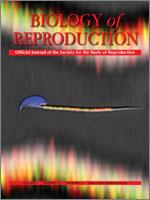Maternal alcohol abuse during pregnancy can produce an array of birth defects comprising fetal alcohol syndrome. A hallmark of fetal alcohol syndrome is intrauterine growth retardation, which is associated with elevated apoptosis of placental cytotrophoblast cells. Using a human first trimester cytotrophoblast cell line, we examined the relationship between exposure to ethanol and cytotrophoblast survival, as well as the ameliorating effects of epidermal growth factor (EGF)-like growth factors produced by human cytotrophoblast cells. After exposure to 0–100 mM ethanol, cell death was quantified by the TUNEL method, and expression of the nuclear proliferation marker, Ki67, was measured by immunohistochemistry. The mode of cell death was determined by assessing annexin V binding, caspase 3 activation, pyknotic nuclear morphology, reduction of TUNEL by caspase inhibition, and cellular release of lactate dehydrogenase. Ethanol significantly reduced proliferation and increased cell death approximately 2.5-fold through the apoptotic pathway within 1–2 h of exposure to 50 mM alcohol. Exposure to 25–50 mM ethanol significantly increased transforming growth factor alpha (TGFA) and heparin-binding EGF-like growth factor (HBEGF), but not EGF or amphiregulin (AREG). When cytotrophoblasts were exposed concurrently to 100 mM ethanol and 1 nM HBEGF or TGFA, the increase in apoptosis was prevented, while EGF ameliorated at 10 nM and AREG was weakly effective. HBEGF survival-promoting activity required ligation of either of its cognate receptors, HER1 or HER4. These findings reveal the potential for ethanol to rapidly induce cytotrophoblast apoptosis. However, survival factor induction could provide cytotrophoblasts with an endogenous cytoprotective mechanism.
How to translate text using browser tools
1 July 2007
Epidermal Growth Factor-Like Growth Factors Prevent Apoptosis of Alcohol-Exposed Human Placental Cytotrophoblast Cells
Garen S. Wolff,
Po Jen Chiang,
Susan M. Smith,
Roberto Romero,
D. Randall Armant
ACCESS THE FULL ARTICLE

Biology of Reproduction
Vol. 77 • No. 1
July 2007
Vol. 77 • No. 1
July 2007
Apoptosis
growth factors
placenta
toxicology
trophoblast




